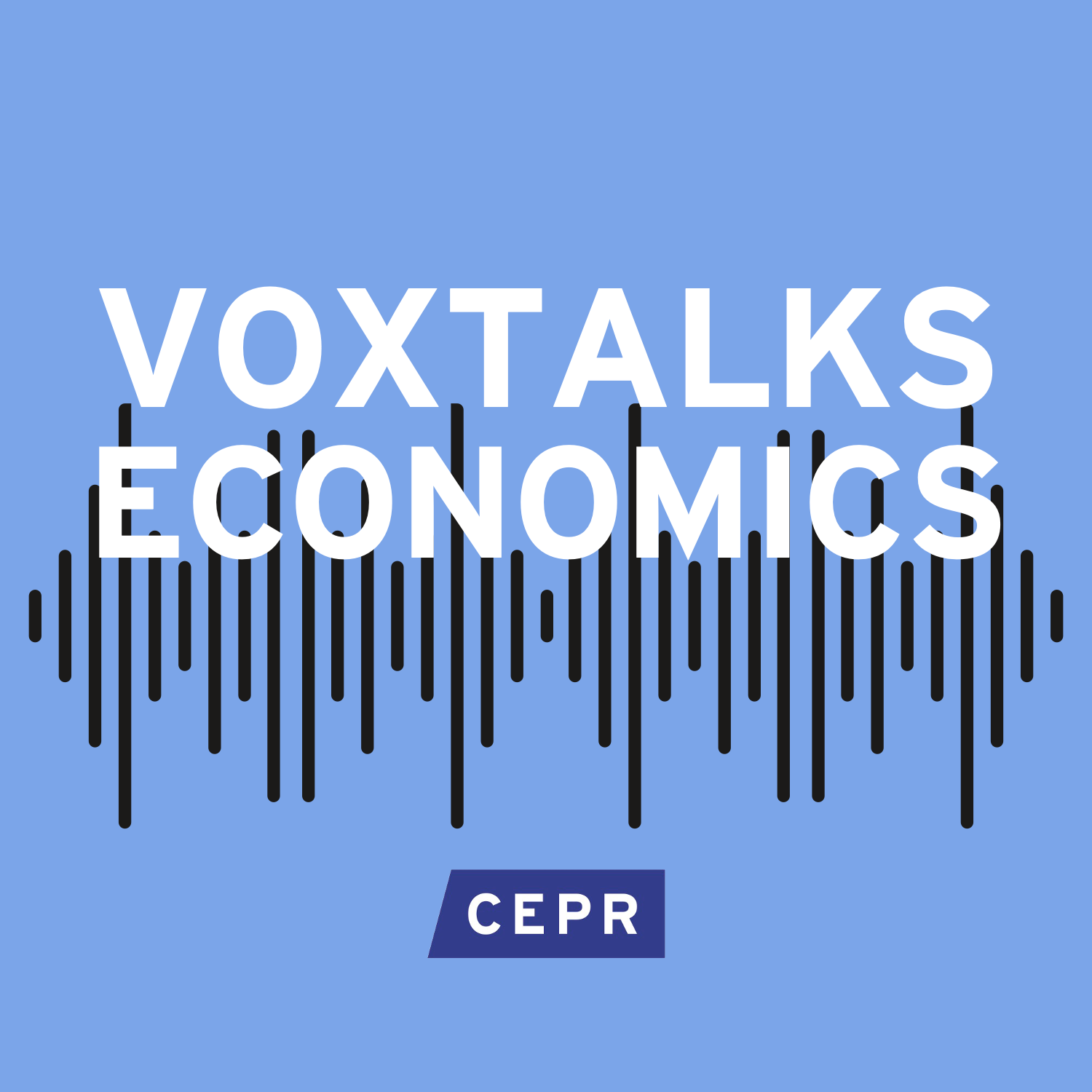

VoxTalks Economics
VoxTalks
Learn about groundbreaking new research, commentary and policy ideas from the world's leading economists. Presented by Tim Phillips.
Episodes
Mentioned books

Sep 6, 2024 • 15min
S7 Ep42: The economics of strategy
Ghazala Azmat, an expert on organizational strategy, discusses her new initiative exploring how organizations craft their strategies. She highlights the critical role organizations play in solving societal problems. The conversation dives into the principles of organizational economics, emphasizing incentives and hierarchies that affect performance. Ghazala also addresses disparities in organizational success, advocating for a mix of corporate culture and capability to boost competitiveness. Lastly, she outlines ways researchers can collaborate to enhance strategic decision-making.

Aug 30, 2024 • 24min
S7 Ep41: The EU miracle
In 2004 75 million people in 10 countries joined the EU. Their GDP per capita has grown dramatically in the last 20 years – but how much of that is due to EU membership, and how much would have happened anyway? Basile Grassi tells Tim Phillips that the enlargement of the EU in 2004 was “a miracle” for the economies of these countries, even though nationalist politicians may argue otherwise.

Aug 23, 2024 • 22min
S7 Ep40: The economic burden of burnout
Today doctors recognise the symptoms of burnout from work-related stress. It’s a common problem, but one that can have serious, long-term consequences for sufferers. New research shows that there are measurable consequences for partners and children too, and lasting effects on fertility. Arash Nekoei and Josef Sigurdsson talk to Tim Phillips about the scale of the burnout burden, and what can we do to identify the problem before it happens.

Aug 16, 2024 • 25min
S7 Ep39: Getting cash transfers right
Paul Niehaus, an expert in poverty alleviation, discusses the intricacies of cash transfer programs. He explores the debate over universal versus targeted cash transfers, emphasizing the importance of context in designing programs. The conversation touches on the growing interest in Universal Basic Income and its potential political ramifications. Niehaus also highlights lessons learned from cash transfer research in Kenya, advocating for strategies that prioritize the needs of the most disadvantaged while ensuring efficiency in public finance.

Aug 9, 2024 • 22min
S7 Ep38: Do billionaires pay taxes?
Antoine Bozio, a leading economist focused on tax issues concerning the ultra-rich in France, engages in a thought-provoking discussion. They explore how data scarcity complicates understanding the tax obligations of billionaires. The conversation highlights disparities between tax policies and actual tax burdens faced by the wealthy and scrutinizes the adequacy of the current tax regime. Bozio also examines proposed reforms aimed at enhancing progressivity in taxation while tackling the challenges wealthy individuals present in navigating tax laws.

Aug 2, 2024 • 22min
S7 Ep37: When development creates conflict
Economic development, especially in Africa, often implies improving crop agriculture. But many rural populations are pastoralists, grazing their cattle on land that policymakers have earmarked for crops. So is good news for crop farmers also a threat to the pastoralists’ way of life? Eoin McGuirk tells Tim Phillips about how some apparently successful development projects create conflict between communities.

Jul 26, 2024 • 30min
S7 Ep36: Competence vs gender
Women are under-represented in politics. If women aren’t chosen to stand for election, and voters are biased against them when they do, what can break this vicious circle? S Anukriti tells Tim Phillips about how local decision-making as part of a school-building programme in India has allowed women to show they are effective leaders, to change the political agenda, and even to convince sceptics that women have a place in politics.

Jul 19, 2024 • 24min
S7 Ep35: Improving digital payments for social protection
More new research from the CEPR-PSE Symposium 2024.
It’s infuriating when you’re expecting a digital payment to arrive, it is lost in the system somewhere, and no one seems to be able to do anything about it. Now imagine how devastating it is if that payment is all that’s keeping you and your family out of poverty. Yusuf Neggers is one of a team that have created an app to improve the administration of payments for the Indian government’s MGNREGA programme.
Photo: MGNREGA/UN Women Asia & Pacific

Jul 12, 2024 • 24min
S7 Ep34: The next generation: PSE 2024
In our latest podcast from the PSE-CEPR Policy Forum 2024, we feature three of the young economists who made their mark at the conference. Tim Phillips talks to
Alice Chiocchetti about the extent and impact of profit shifting by French firms, Yuan Hu about green technological change after natural disasters, and Christoph Semken about how we all underestimate the impact of our emissions-reducing life changes.

Jul 5, 2024 • 18min
S7 Ep33: The effects of disability hiring quotas
More new research from the CEPR-PSE Symposium 2024.
More than 100 countries have some form of quota regulation that requires firms to hire people with disabilities. Does this example of affirmative action help people who have a disability to find a job, and what is the impact on the firm, and on fellow workers? Christiane Szerman tells Tim Phillips about the surprising labour market effects of a hiring quota in Brazil.


